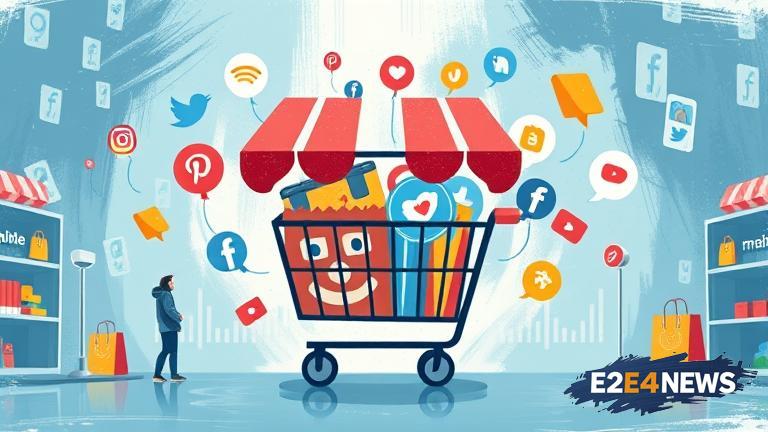The world of e-commerce is undergoing a significant transformation, driven by the increasing popularity of social media platforms. Social media sites such as Instagram, Facebook, and TikTok are no longer just used for socializing, but have become essential channels for online shopping. With the rise of social media shopping, consumers can now discover and purchase products directly from their favorite social media platforms. This shift has been driven by the growing demand for convenience, personalized experiences, and immersive storytelling. Social media platforms have responded by introducing new features such as shoppable posts, stories, and reels, making it easier for consumers to shop online. For instance, Instagram’s ‘Shopping’ feature allows businesses to tag products directly in their posts and stories, enabling customers to purchase from the platform. Similarly, Facebook’s ‘Marketplace’ feature provides a dedicated space for buying and selling goods. The rise of social media shopping has also led to the emergence of new business models, such as influencer marketing and social commerce. Influencers and content creators are now playing a crucial role in promoting products and services to their followers, driving sales and revenue for businesses. Moreover, social media platforms are using artificial intelligence and machine learning algorithms to personalize the shopping experience, recommending products based on users’ interests and preferences. The use of augmented reality (AR) and virtual reality (VR) technologies is also becoming increasingly popular, allowing consumers to try out products virtually before making a purchase. As social media shopping continues to grow, businesses are adapting their strategies to stay ahead of the curve. They are investing in social media advertising, creating engaging content, and leveraging user-generated content to build brand awareness and drive sales. The rise of social media shopping has also raised concerns about data privacy and security, with consumers becoming increasingly cautious about sharing their personal data online. To address these concerns, social media platforms are implementing robust security measures, such as encryption and two-factor authentication, to protect user data. Furthermore, social media shopping has also created new opportunities for small businesses and entrepreneurs, providing them with a platform to reach a wider audience and compete with larger brands. Overall, the rise of social media shopping is revolutionizing the way we shop online, offering a more convenient, personalized, and immersive experience for consumers.
